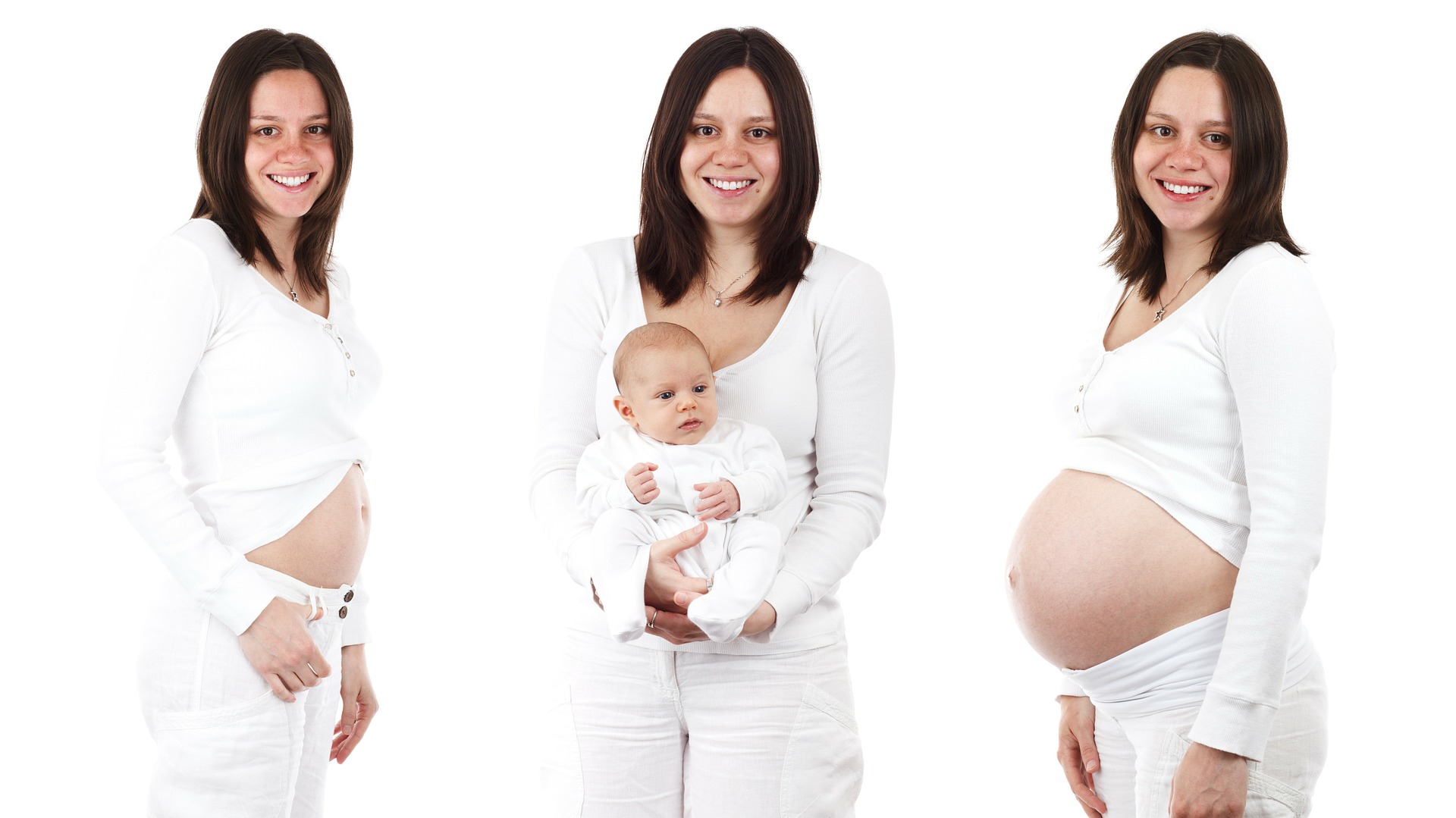A woman goes through three stages of pregnancy after she conceives. The stages start from the first day of her last period. All the stages require 37 to 42 weeks or typically around 40 weeks or 9 months to complete a pregnancy from the beginning to the ending. Each of the three trimesters covers around 12 to 13 weeks or 3 months. During each of the stages of pregnancy, her body goes through changes to develop the pregnancy and to get ready to give birth to a new baby. The three stages are called the first trimester, second trimester, and third trimester. Below we outline your expectation of the signs as a pregnant throughout all three trimesters or stages of pregnancy.
First Trimester
The First Trimester of pregnancy starts on the first day of your last period and ends on the 12th week of your pregnancy. Your body will go through many changes and there will be many effects on your body there will be some signs of your pregnancy during the early stage of your pregnancy. The first sign of your pregnancy is missing your period. Then, your breasts may feel fuller and tender. And your nipples and the surrounding area which are called areola may seem darker. Since your womb gets bigger, and it presses on your bladder, you will more likely to pass urine more often than usual. Because of all the new changes introduced to your body, you may feel very sleepy and tired. During this time, your womb gets bigger and stretches the surrounding ligaments. As a result, you may feel pain around the sides of your abdomen. You may feel like you will vomit which is called morning sickness though it can happen any time in the day. This kind of sickness is more often during the early stage of pregnancy that can be checked by taking less food and by blending your foods. The passage of food and your digestive system slows down during this time. As a result, you may get constipation.
Second Trimester
The second trimester of pregnancy starts on the 13th week and ends on the 27th week. This stage of pregnancy is the trimester when your pregnancy becomes physically visible though it varies from woman to woman. But in most cases, women show the visibility of their pregnancy from the 20th week. Your developing baby, the placenta, the fluids in your womb, breasts, your extra fluids, and your extra fat stores necessary for your pregnancy will increase your weight by around twenty to twenty-five pounds.
As your abdomen and breasts increase in volume, you will see stretch marks on the skin of your breasts and belly which is quite natural and which will fade away after your pregnancy. By the time you are sixteen-week pregnant, morning sickness will get better. Pregnancy hormones and the extra weight you are carrying will cause you to suffer from back pain and pelvic pain and will find difficulties walking. As your baby gets bigger and stronger, you will feel it move in your womb that usually happens for the first time during 18 to 20 weeks of pregnancy but if it is not your first pregnancy, it may happen earlier. Whenever you maintain these pregnancy stages as a surrogate mother, you might keep connected to your kinderwunschklinik or surrogacy clinic.
Third Trimester
The third trimester of pregnancy starts on the 28th week and may end on the 40th week. As your baby grows, you may become breathless and tired which sometimes may be caused by anemia. Because of the size of your baby, you may feel uncomfortable in this last stage of your pregnancy which may cause you to disturb your sleep. You will need to go to the toilet more often than ever, even during the night which will effectively harm your sleep will ultimately make you tired. You may experience womb contractions starting from the 30th week which will make you uncomfortable. The common heartburn during pregnancy will affect you most in the third trimester. Take bland foods and little servings more often plus consult your obstetrician if you can use medicine as an antacid to reduce your heartburn.
Swelling in the legs, feet, and arms is another sign in late pregnancy but if it gets suddenly worse, contact your midwife as it is a symptom of pre-eclampsia or high blood pressure in pregnant women. The flow of blood around your legs will slow down and your breasts will start to produce and leak some milky fluids called colostrums towards the end of your pregnancy. As your baby descends into your pelvis, you will pass urine more along with losing bladder control especially when you sneeze or cough.


